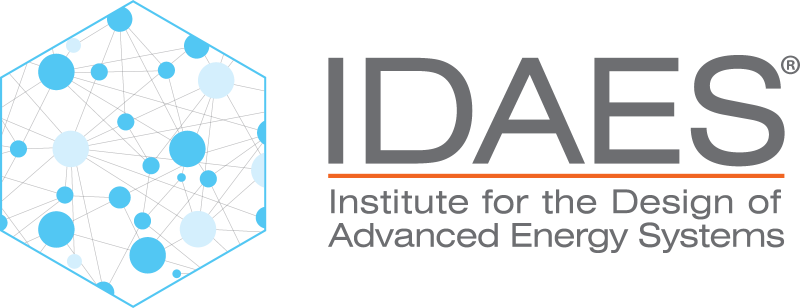Degeneracy Hunter (Legacy)#
Note
v2.2: The original Degeneracy Hunter tool is being deprecated in favor of the newer Diagnostics Toolbox.
Over the next few releases the functionality of Degeneracy Hunter will be moved over to the new Diagnostics Toolbox which will also contain a number of other tools for diagnosing model issues.
- class idaes.core.util.model_diagnostics.DegeneracyHunter(block_or_jac, solver=None)[source]#
Degeneracy Hunter is a collection of utility functions to assist in mathematical modeling in Pyomo.
- check_rank_equality_constraints(tol=1e-06, dense=False)[source]#
Method to check the rank of the Jacobian of the equality constraints
- Parameters:
tol – Tolerance for smallest singular value (default=1E-6)
dense – If True, use a dense svd to perform singular value analysis, which tends to be slower but more reliable than svds
- Returns:
Number of singular values less than tolerance (-1 means error)
- check_residuals(tol=1e-05, print_level=1, sort=True)[source]#
Method to return a ComponentSet of all Constraint components with a residual greater than a given threshold which appear in a model.
- Parameters:
block – model to be studied
tol – residual threshold for inclusion in ComponentSet
print_level –
controls to extend of output to the screen:
0 - nothing printed
1 - only name of constraint printed
2 - each constraint is pretty printed
3 - pretty print each constraint, then print value for included variable
sort – sort residuals in descending order for printing
- Returns:
A ComponentSet including all Constraint components with a residual greater than tol which appear in block
- check_variable_bounds(tol=1e-05, relative=False, skip_lb=False, skip_ub=False, verbose=True)[source]#
Return a ComponentSet of all variables within a tolerance of their bounds.
- Parameters:
block – model to be studied
tol – residual threshold for inclusion in ComponentSet (default = 1e-5)
relative – Boolean, use relative tolerance (default = False)
skip_lb – Boolean to skip lower bound (default = False)
skip_ub – Boolean to skip upper bound (default = False)
verbose – Boolean to toggle on printing to screen (default = True)
- Returns:
A ComponentSet including all Constraint components with a residual greater than tol which appear in block
- find_candidate_equations(verbose=True, tee=False)[source]#
Solve MILP to find a degenerate set and candidate equations
- Parameters:
verbose – Print information to the screen (default=True)
tee – Print solver output to screen (default=True)
- Returns:
either None or dictionary of candidate equations
- Return type:
ds
- find_irreducible_degenerate_sets(verbose=True, tee=False)[source]#
Compute irreducible degenerate sets
- Parameters:
verbose – Print information to the screen (default=True)
tee – Print solver output to screen (default=True)
- Returns:
list of irreducible degenerate sets
- Return type:
irreducible_degenerate_sets
- static print_variable_bounds(v)[source]#
Print variable, bounds, and value
- Parameters:
v – variable
- Returns:
None
- svd_analysis(n_sv=None, dense=False)[source]#
Perform SVD analysis of the constraint Jacobian
- Parameters:
n_sv – number of smallest singular values to compute
dense – If True, use a dense svd to perform singular value analysis, which tends to be slower but more reliable than svds
- Returns:
None
- Actions:
Stores SVD results in object
- underdetermined_variables_and_constraints(n_calc=1, tol=0.1, dense=False)[source]#
Determines constraints and variables associated with the smallest singular values by having large components in the left and right singular vectors, respectively, associated with those singular values.
- Parameters:
n_calc – The singular value, as ordered from least to greatest starting from 1, to calculate associated constraints and variables
tol – Size below which to ignore constraints and variables in the singular vector
dense – If True, use a dense svd to perform singular value analysis, which tends to be slower but more reliable than svds
- Returns:
None
